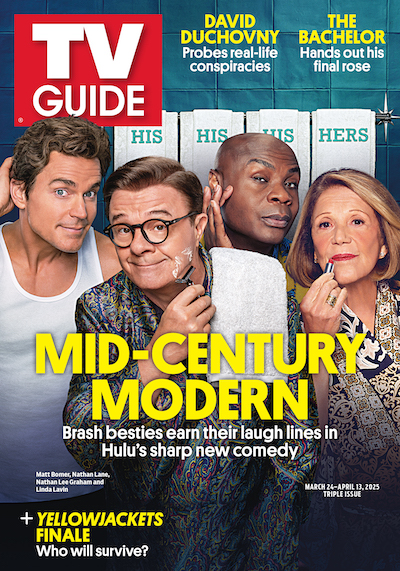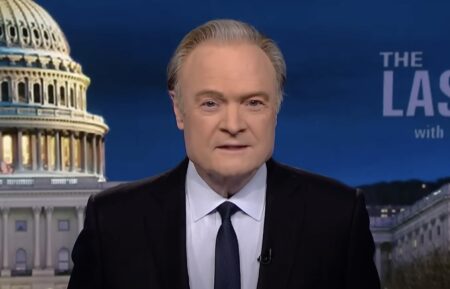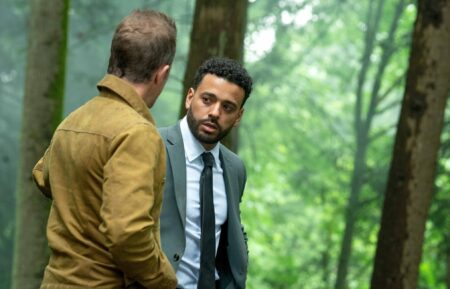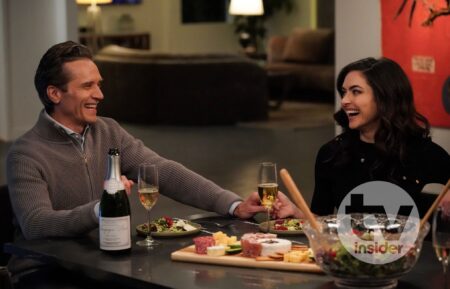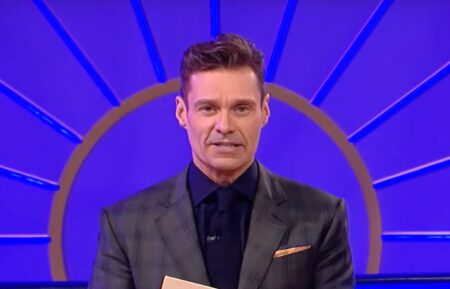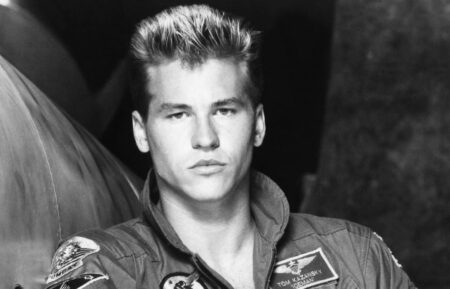Richard Armitage Is ‘Hannibal’s Great Red Dragon
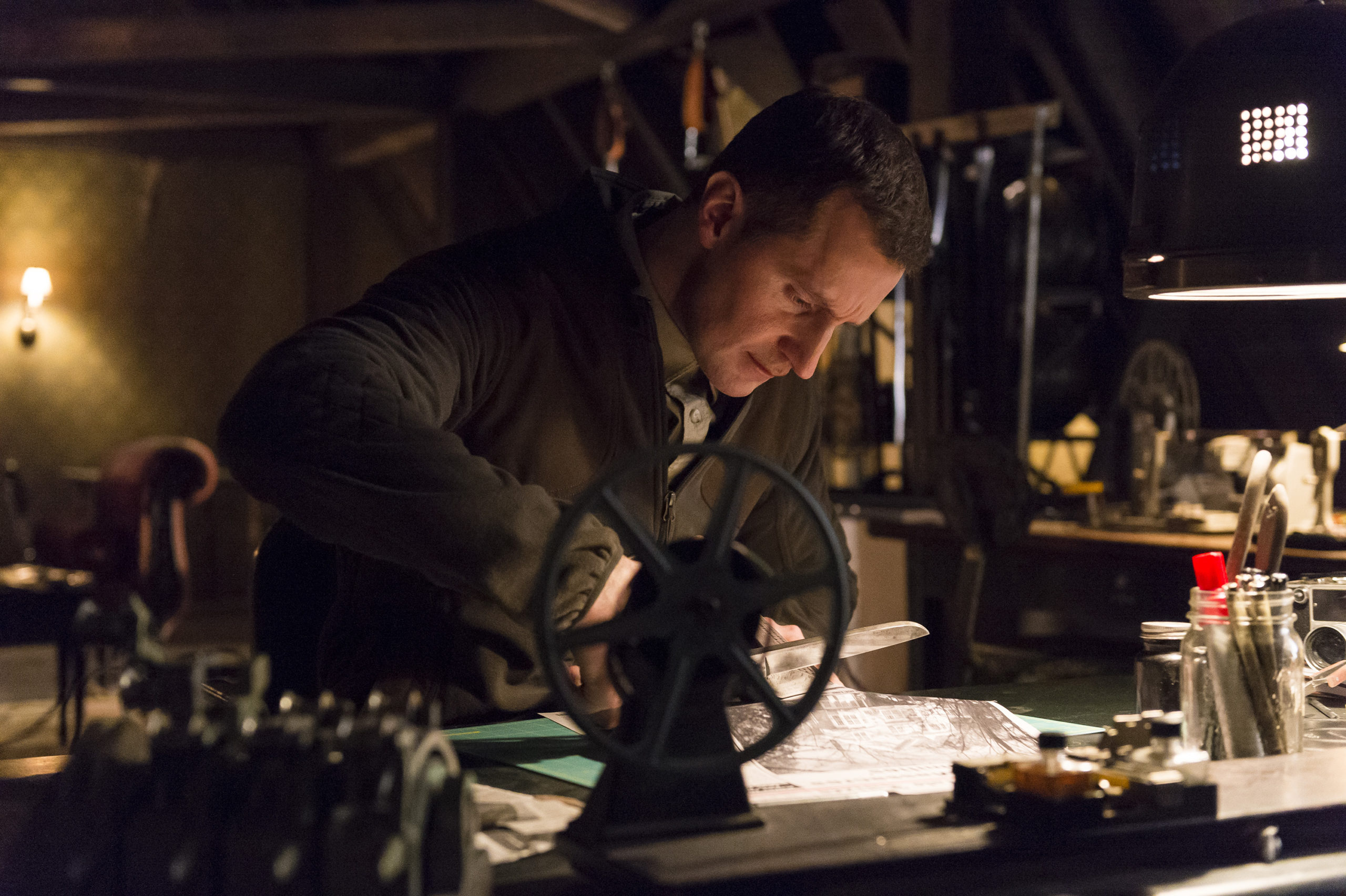
Behold, the Great Red Dragon! Richard Armitage begins his arc as the supremely creepy (but occasionally, weirdly sweet) serial family-murderer Francis Dolarhyde (a.k.a. the Red Dragon) on this Saturday’s Hannibal, and executive producer Bryan Fuller is promising a villain who’ll test the audience’s ability to handle Dolarhyde’s duality: “You can root against the monster, but you also need to root for the man, and hope he defeats the monster.” We chatted with Armitage about creating his own particular version of Thomas Harris’ monster.
It’s funny, you’re going from fighting a dragon in The Hobbit to wanting to become one in Hannibal.
[Laughs] It took me a while to make the connection myself! But it really has been the Years of the Dragon, I’d say.
Talking to Bryan at the beginning of the season, he said he wanted someone who could handle the Shakespeare-level tragedy of a character like Dolarhyde, and that’s what you brought. When did you come aboard?
It was very close to filming. I think I had about 10 days. Which always makes me think they’ve been to a number of other people and haven’t been able to get hold of them, so when things come together fast you tend to think, “Oh, I was probably a bit of a last resort.”
I don’t know why we always associate Shakespeare with these high peaks and deep troughs, but we do. In a contemporary drama, to have a sort of domestic character that is committing such extraordinary crimes—such terrible, deep-rooted, horrific crimes—it does have a kind of Shakespearean take. You think: In a contemporary man’s mind, how is that possible? In a sort of post-Freudian society where everyone’s in therapy and we can solve all of these problems, these extremes of the human condition are still out breathing and walking alongside us. And who are they? We’re all born equal, to an extent, and it’s all about studying someone who leads them into this very dark forest, and that’s very much where Francis Dolarhyde has found himself.
The lone source of light for him is his relationship with Reba (Rutina Wesley), with whom he’s incredibly sweet and loving. How’d you go about creating that relationship?
You know, Thomas Harris gives us so much information, beautifully written in his novel. It also involves a certain amount of flex in the actress who plays Reba MacLean, that she doesn’t have a sort of deep-rooted hidden agenda about what she thinks a psychopath is. It’s actually quite difficult, a lot of the responses that people have already committed to blogging is that they already despise this character, and how can you play a character that’s so despicable, and how can you glamorize a character that’s so despicable, without having read the book or seen what we’re going to do with him? That… I would call it an “agenda of judgment,” is in all of us. Actually it took Rutina coming to the table—she had read the book as well, so she came without judgment—to enable us to have chemistry. The character is blind, physically, but she’s emotionally more sighted than anybody. And she really sees the man inside the monster. And through her seeing that, as an audience, we see that too.
Would you say the most difficult part of doing this role was having to put aside that judgment?
Yeah! If you read the book, Thomas Harris has such affection for Francis, yet at the same time [Harris] will write about the terrible, terrible crimes [Francis] commits. And we must never put that aside. One of the biggest fears I had was, because I’d only read the first script, that I was going to have to actually commit those crimes on film, which would’ve been a dealbreaker for me. I wouldn’t have been able to accept the job if I had to go into that, playing a scene where that would happen. But knowing Bryan Fuller and knowing the way he shapes the show, I knew you rarely see the murderer commit the crime—you see Will Graham experiencing those crimes through his psychology. So to me, I actually had disassociated [Francis] from what he’d done, and I felt like the character was doing the same thing. He was only reminded of what he’d done when he was watching it on film. And he was as horrified as I was. We see that in one of the episodes; we see him rewatching his film and being in absolute anguish as to what he’s done and why he’s done it.
Did you watch any of the other Francis Dolarhydes before this, or did you come in clean?
I did come in clean. I had seen both of them, Manhunter and Red Dragon, but for some reason, and not to be disrespectful to Ralph Fiennes at all, I just don’t really remember Red Dragon. It was maybe too long ago. But I do remember Tom Noonan in Manhunter, and I think it’s something to do with his physical presence on screen. He was an extraordinarily tall guy, and I actually remember the Hannibal Lecter from that movie more than Hopkins’s. The original Manhunter is more frightening than any of the other movies. And it’s something to do with the soundtrack and the graininess of the film; it’s more crudely shot. But I didn’t revisit it for this. I thought I might go back and look at it afterward, but I haven’t. I think I feel like I’ve had a bit too much Francis Dolarhyde. There’s only so much of him you can take.
From TV Guide Magazine
How Hulu's 'Mid-Century Modern' Is a 'Golden Girls' for Our Times
Settle in for some older and bolder laughs with the BFFs of a certain age in the new comedy starring Nathan Lane, Matt Bomer, and Nathan Lee Graham. Read the story now on TV Insider.


